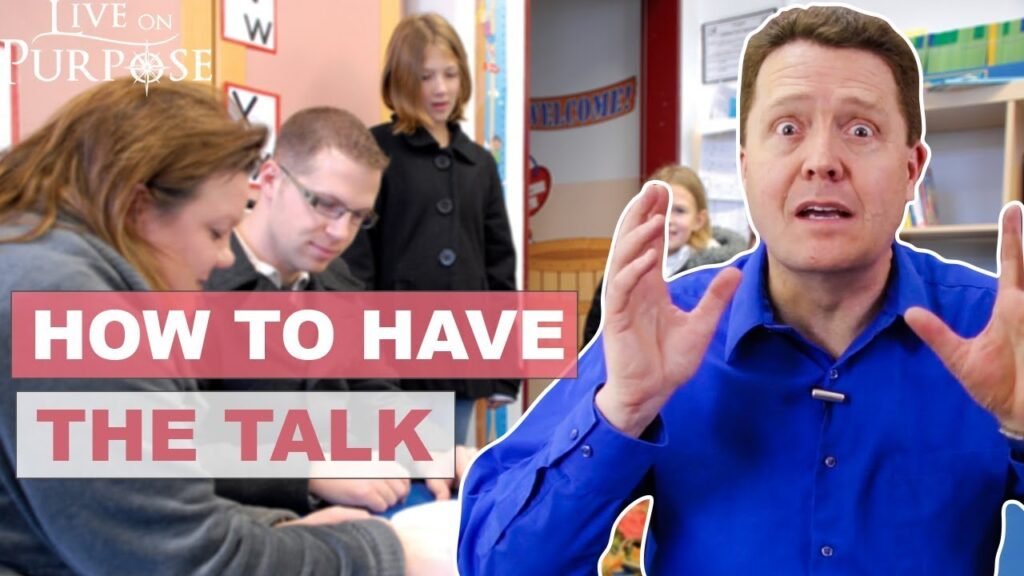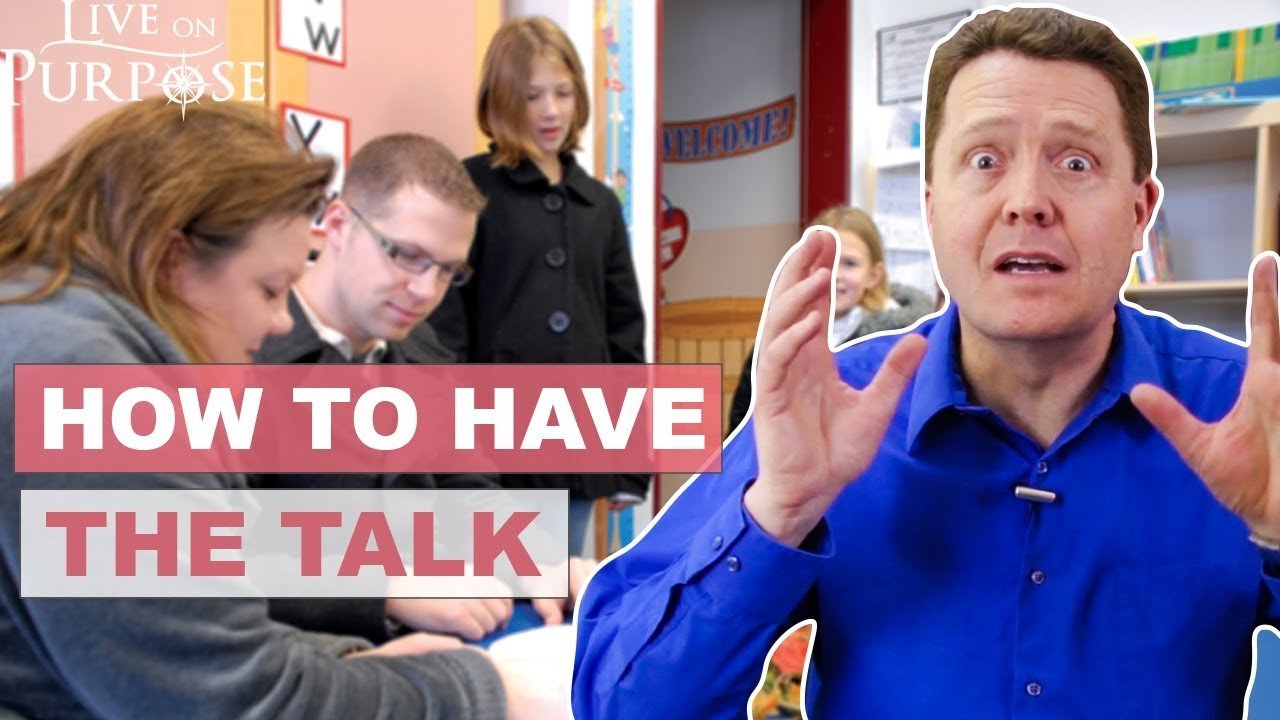Are you unsure of how to approach your child’s teacher about concerns? In this video by Live On Purpose TV, Dr. Paul Jenkins provides insight into the mindset of teachers, emphasizing that they are people too. He explains that teachers are not in it for the money, but rather for their passion to make a difference in the lives of children. With this perspective in mind, Dr. Jenkins offers valuable tips on how to effectively communicate with your child’s teacher. Starting with appreciation and treating them with respect, he encourages parents to have an open conversation and to collaborate with teachers in finding solutions to concerns.
The key to successfully addressing concerns with your child’s teacher begins with understanding and appreciation. By recognizing teachers as individuals who genuinely want the best for their students, parents can establish a positive and collaborative approach. In this informative video, Dr. Paul Jenkins shares practical strategies for initiating conversations with teachers, such as expressing gratitude and leading with appreciation. Additionally, he advises parents to stay in front of their concerns by avoiding the use of the word “but” and instead focusing on building an alliance with the teacher. By following these tips, parents can create a productive and supportive relationship with their child’s teacher, ultimately benefiting their child’s education.

Understanding Teachers
Teachers are people too
When approaching your child’s teacher about a concern, it is important to remember that teachers are human beings with real feelings, histories, families, and backgrounds. They are not just a figure of authority, but individuals who have dedicated their lives to the education and well-being of children. Understanding and acknowledging the humanity of teachers is crucial in establishing a positive and effective conversation.
Teachers are not in it for the money
Contrary to popular belief, teachers are not motivated by monetary gain. In fact, they are often among the most underpaid professionals in the world. Teachers choose their profession because they are passionate about making a difference in the lives of their students and are genuinely committed to their education. Recognizing the selfless dedication of teachers can help foster a respectful and appreciative attitude when addressing concerns.
Teachers sincerely want to assist your child to succeed
Teachers have a sincere desire to see every student succeed. They work tirelessly to provide quality education and support to their students, going above and beyond their responsibilities. Approaching your child’s teacher with the understanding that they truly want what is best for your child can help build a positive and collaborative relationship. Remember that your concerns align with the teacher’s goals, and together you can work towards finding a solution.
Starting the Conversation
Expressing gratitude and appreciation
When initiating a conversation with your child’s teacher, begin by expressing gratitude and appreciation for their efforts. Highlight something specific they have done for your child, such as a recent special project or extra attention given to their learning. By starting with appreciation, you set a positive tone for the conversation and show that you recognize the teacher’s dedication.
Avoid using the word ‘but’
In order to maintain open and effective communication, it is crucial to avoid using the word ‘but’ when discussing concerns. Using ‘but’ immediately negates any appreciation expressed and can make the teacher defensive. Instead, focus on staying in front of the ‘but’ and keep the conversation focused on constructive dialogue rather than criticism.
Utilizing the power of the pause
The power of the pause is a technique used in professional speaking that can be valuable in conversations with teachers. After expressing appreciation, take a moment to pause and allow the teacher to absorb your words. This pause emphasizes the genuineness of your appreciation and creates a space for the teacher to feel acknowledged and valued.
Addressing Concerns
Describing observations without blame or criticism
When addressing a concern, it is important to provide a clear and objective description of what you have observed without placing blame or criticizing anyone involved. Focus on the behavior or situation you have noticed, such as your child coming home upset about a specific class or another student’s actions. By avoiding blame or criticism, you create an environment that encourages understanding and problem-solving.
Inviting Collaboration
Inviting the teacher to join in problem-solving
Instead of placing the responsibility solely on the teacher to resolve the concern, invite them to collaborate with you in finding a solution. Emphasize that you consider them an important part of your child’s educational journey and would appreciate their input and ideas. By including the teacher in the problem-solving process, you create a shared responsibility and foster a sense of teamwork.
Asking for the teacher’s input or ideas
To further encourage collaboration, specifically ask the teacher for their thoughts, observations, or suggestions on how to address the concern. By showing genuine interest in their perspective, you demonstrate a willingness to work together and value their professional insight. This collaborative approach can lead to more effective solutions and a stronger relationship between you and the teacher.
Building an Alliance
Creating a warm connection
Building a warm connection with your child’s teacher is key to establishing trust and open communication. Expressing appreciation, acknowledging their efforts, and treating them with respect are all ways to foster a positive relationship. By creating a warm connection, you can approach concerns from a place of mutual understanding and work together towards a resolution.
Working together as a team
Viewing your relationship with your child’s teacher as a partnership can significantly improve communication and problem-solving. By recognizing that both you and the teacher have the same goal of helping your child succeed, you can collaborate more effectively. Approach discussions with a mindset of teamwork, and remember that your concerns are valid and valuable contributions to the overall educational experience.
Effective Communication
Being respectful and friendly towards the teacher
Maintaining a respectful and friendly tone when talking to your child’s teacher is essential for effective communication. Use polite language, avoid confrontational or accusatory statements, and listen actively. Treat the teacher as a trusted professional who is dedicated to the well-being of your child. Remember that open and respectful communication sets the stage for productive conversations and positive outcomes.
Sharing the Tips
Encouraging others to share the tips with their child’s teacher
After learning these effective communication strategies, it can be helpful to share them with other parents or caregivers. Encourage others in your community to approach their child’s teacher with a similar mindset and utilize the techniques discussed. Spreading this knowledge can contribute to better teacher-parent communication and ultimately benefit the overall educational experience for all children.
Spreading the knowledge for better teacher-parent communication
Better teacher-parent communication is vital for the success of students. Encourage others to share this knowledge and actively participate in open and respectful conversations with their child’s teacher. By fostering understanding, appreciation, and collaborative problem-solving, we can create strong alliances between teachers and parents, leading to better support for our children’s education.
Conclusion
Recap of the importance of understanding teachers
Understanding teachers as individuals with their own personal lives, motivations, and dedication to their profession is crucial when approaching conversations about concerns regarding your child’s education. Recognizing their hard work, addressing concerns without blame or criticism, and inviting collaboration are key elements of effective communication with teachers.
Highlighting the effective communication strategies discussed
The communication strategies discussed in this article can greatly contribute to positive and productive discussions with your child’s teacher. Starting with appreciation, avoiding the use of ‘but,’ utilizing the power of the pause, and building a warm connection are all essential aspects of effective communication. Additionally, addressing concerns without blame or criticism, inviting collaboration, and treating the teacher with respect are valuable strategies for building a strong alliance and achieving a shared goal of your child’s success.

